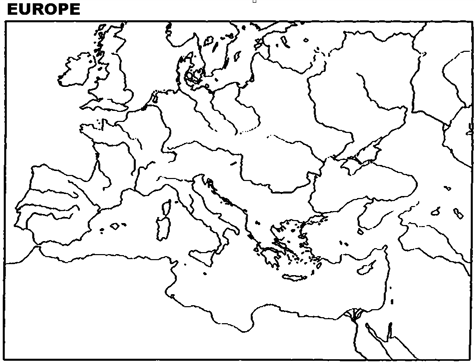Exam 16: The Rise of Sovereignty Transition to the Modern State
Exam 1: The Ancient Near East: The First Civilizations85 Questions
Exam 2: The Hebrews: a New View of God and the Individual90 Questions
Exam 3: The Greek City-State Democratic Politics78 Questions
Exam 4: Greek Thought From Myth to Reason77 Questions
Exam 5: The Hellenistic Age Cultural Diffusion76 Questions
Exam 6: The Roman Republic City-State to World Empire75 Questions
Exam 7: The Roman Empire a World-State90 Questions
Exam 8: Early Christianity a World Religion79 Questions
Exam 9: The Heirs of Rome Byzantium Islam and Latin Christendom95 Questions
Exam 10: The High Middle Ages Vitality and Enewal83 Questions
Exam 11: The Flowering of Medieval Culture the Christian Synthesis78 Questions
Exam 12: The Late Middle Ages Crisis and Dissolution76 Questions
Exam 13: The Renaissance Transition to the Modern Age88 Questions
Exam 14: The Reformation the Shattering of Christian Unity84 Questions
Exam 15: European Expansion Economic and Social Transformations88 Questions
Exam 16: The Rise of Sovereignty Transition to the Modern State84 Questions
Exam 17: The Scientific Revolution the Universe Seen As a Mechanism81 Questions
Exam 18: The Age of Enlightenment Reason and Reform89 Questions
Exam 19: The French Revolution the Affirmation of Liberty and Equality118 Questions
Exam 20: The Industrial Revolution the Great Transformation77 Questions
Exam 21: Thought and Culture in the Early Nineteenth Century105 Questions
Exam 22: Revolution and Counterrevolution 1815-184879 Questions
Exam 23: Thought and Culture in the Mid-Nineteenth Century Realism and Social Criticism81 Questions
Exam 24: The Surge of Nationalism From Liberal to Extreme Nationalism77 Questions
Exam 25: The Industrial West Responses to Modernization91 Questions
Exam 26: Imperialism Western Global Dominance92 Questions
Exam 27: Modern Consciousness New Views of Nature Human Nature and the Arts80 Questions
Exam 28: World War I the West in Despair87 Questions
Exam 29: An Era of Totalitarianism112 Questions
Exam 30: Thought and Culture in an Era of World Wars and Totalitarianism75 Questions
Exam 31: World War II Western Civilization in the Balance85 Questions
Exam 32: Europe After World War II Recovery and Realignment 1945-198987 Questions
Exam 33: The Troubled Present85 Questions
Select questions type
Instructions: Please write a thorough, well-organized essay to answer each question. What factors explain the dramatic increase of Spanish power in the fifteenth and sixteenth centuries and the dramatic decline in Spanish power in the seventeenth century?
(Essay)
4.9/5  (39)
(39)
Instructions: Please use this outline map of Europe to answer the question(s)
 Locate and label the lands belonging to the Austrian Hapsburgs, the Spanish Hapsburgs, and the Hohenzollerns.
Locate and label the lands belonging to the Austrian Hapsburgs, the Spanish Hapsburgs, and the Hohenzollerns.
(Not Answered)
This question doesn't have any answer yet
The descendents of Ferdinand and Isabella married into which non-Spanish family to create an empire extending from Austria to the Pacific?
(Multiple Choice)
4.9/5  (48)
(48)
Instructions: Please define the following key terms. Show Who? What? Where? When? Why Important?
stadholder
(Essay)
4.9/5  (37)
(37)
What events were part of the constitutional crisis England faced in the seventeenth century?
(Multiple Choice)
4.8/5  (43)
(43)
Instructions: Please write a thorough, well-organized essay to answer each question. The French monarchy of the seventeenth century became a model for absolutism. Explain this development.
(Essay)
5.0/5  (37)
(37)
Which of the following statements concerning the reign of Philip II is NOT accurate?
(Multiple Choice)
4.9/5  (43)
(43)
Instructions: Please define the following key terms. Show Who? What? Where? When? Why Important?
New Christians
(Essay)
4.7/5  (36)
(36)
In the Glorious Revolution, William of Orange and the Dutch accepted the invitation of the English Parliament because it would secure their
(Multiple Choice)
4.9/5  (40)
(40)
Instructions: Please define the following key terms. Show Who? What? Where? When? Why Important?
constitutional monarchy
(Short Answer)
4.9/5  (43)
(43)
Instructions: Please write a thorough, well-organized essay to answer each question. The engine that drove the development of the centralized European state was war. Make an argument to support or refute this statement, and defend it with specific evidence.
(Essay)
4.8/5  (37)
(37)
Which of the following helped usher in the modern world, according to the text?
(Multiple Choice)
4.8/5  (38)
(38)
Instructions: Please define the following key terms. Show Who? What? Where? When? Why Important?
raison d'état
(Essay)
4.9/5  (44)
(44)
Instructions: Please define the following key terms. Show Who? What? Where? When? Why Important?
absolutism
(Essay)
4.8/5  (39)
(39)
Instructions: Please define the following key terms. Show Who? What? Where? When? Why Important?
intendants
(Short Answer)
4.8/5  (32)
(32)
Instructions: Please define the following key terms. Show Who? What? Where? When? Why Important?
Time of Troubles
(Essay)
4.8/5  (39)
(39)
Instructions: Please define the following key terms. Show Who? What? Where? When? Why Important?
Versailles
(Essay)
4.8/5  (30)
(30)
Showing 61 - 80 of 84
Filters
- Essay(0)
- Multiple Choice(0)
- Short Answer(0)
- True False(0)
- Matching(0)